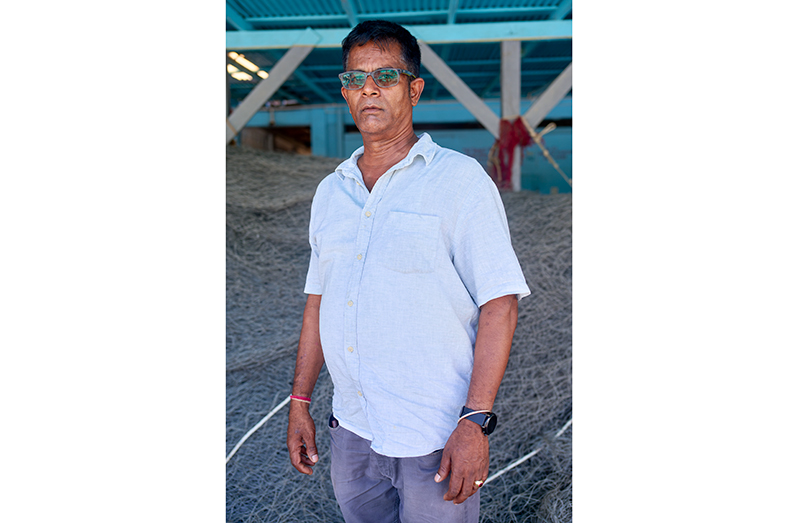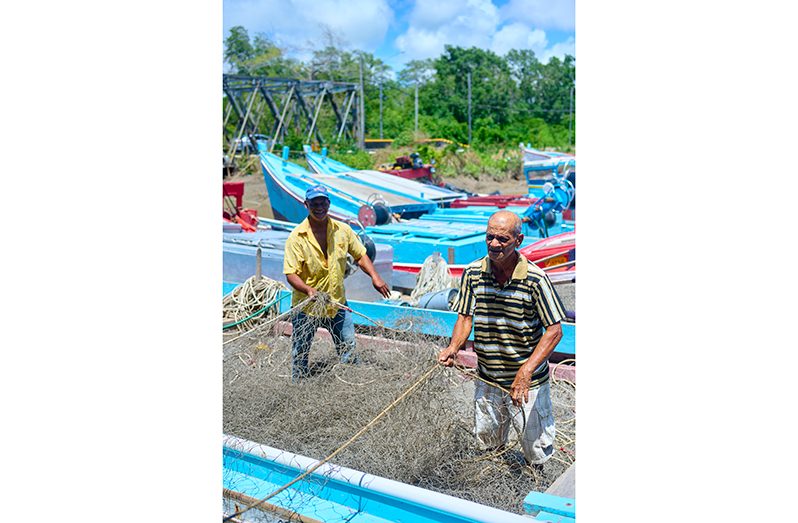The fishing industry of the Corentyne
THE fresh country breeze, the bright sun beating down on acres of grasslands are just a few telltale signs that you are entering into the ever-captivating Corentyne. Home to thousands, Corentyne is arguably one of the country’s most peaceful destinations.
This week, the Pepperpot Magazine ventured across rivers to visit a number of the communities that line the Corentyne. Number 66 village is perhaps one of the most popular communities. Apart from being one of the more densely populated villages, Number 66 is well renowned for its buzzing fishing industry and activities.
The agricultural prowess of Guyana is undeniable. All throughout the nation, agricultural endeavours are growing and diversifying. Throughout different sectors, changes are being made in efforts to build the industry and they all face challenges. The fishing industry is no different. Fishing is one of the oldest jobs known to man and is integral to developing many communities and entire countries. But it may not be as sustainable as it once was.
For decades, the Corentyne has been at the forefront of the region’s fishing activities. For years, generations of men and some women have ventured out to sea, for days and even weeks at a time, traversing familiar fishing grounds in hopes of hauling a big catch. Over time, however, the catches have been smaller, and the fishermen fewer.
Whether there are fewer fish because there are fewer fishermen or if there are fewer fishermen because there are fewer fish is something the people of the Corentyne are still to find answers to.
Pameshwar Jaimarine, known throughout Number 66 and the neighbouring communities as Max, is Chairman of the Upper Corentyne Fishermen Co-op Society and the Chairman of the Guyana National Fisherfolk Organisation. Likewise, his father was a fisherman, and after finishing school, Max ventured out to the ocean and has done so for more than four decades.
Going out on the ocean
Growing up in Number 66 village, he describes his home as being just as quiet as it is today and just as serene as always. “Initially, I started to work with my father. Then I began going out to the ocean; fishing in the Atlantic Ocean,” he stated. Many people may underestimate the work of a fisherman, the challenges, the risks, and the excitement. Being out at sea is one of the most unique and refreshing experiences, according to Max and his fellow fishermen. “It is an amazing experience to be in the ocean, in the open seas,” Max said in talking about being at sea. “Being out at sea is quiet, silent, and there is blue water rolling all around you.”

Max describes fishing in an almost poetic manner. He and his fellow sea goers venture out to sea under the Caribbean sun to pull in net after net of fish. The act of setting out to sea requires great preparation. Although there are some things they cannot prepare for, such as storms at night on the water, things must be put in place. Max explains that he and his fellow fishermen do not go out daily, but rather make the water their home for weeks. Being away from their homes and, more importantly, land for so long means these men must be prepared.
The men setting out to sea must have their boats packed with everything they will need for survival on the water. As Max explains, this means clean water, food, and a means of cooking. “Sometimes, our men go out for 10 to 12 days. They go with flour, rice, and things to cook,” Max explained. The real excitement, however, the real enjoyment of the work comes from the camaraderie shared. As Max stated, “It is never boring when you are out there. We have each other, and we talk, and we laugh, we have fun.”
Changes in marine life
No industry is without challenges, and the ancient craft of fishing is no different. Throughout the years, Max has seen fishing evolve in many ways. He has seen the improvement of fishing gear and the diversification of techniques. But he has also seen a decline in fishermen’s catch today compared to three or four decades ago. Max cannot be conclusive about the true reason behind this phenomenon. But, he believes that increased fishing in the same waters has led to the catching of younger fish. He encourages his fellow fishermen to venture out and find new waters, to expand their fields and rotate their fishing grounds.
Although some may not consider it as such, fishing is most certainly a profession and a skill. The challenges encountered are not often heard of, as storms and the threat of piracy attacks are just a few. Leaving land behind and making the ocean one’s home is remarkable. As they cast net after net out and work in unison to return safe and saddled with a few hundred pounds of fish, the fishermen of the Corentyne take pride in what they do. “Our motto is we risk our lives to feed the nation with high-quality protein,” says Max. And live that motto they do, risking so much to return home with a fresh catch.



.jpg)








